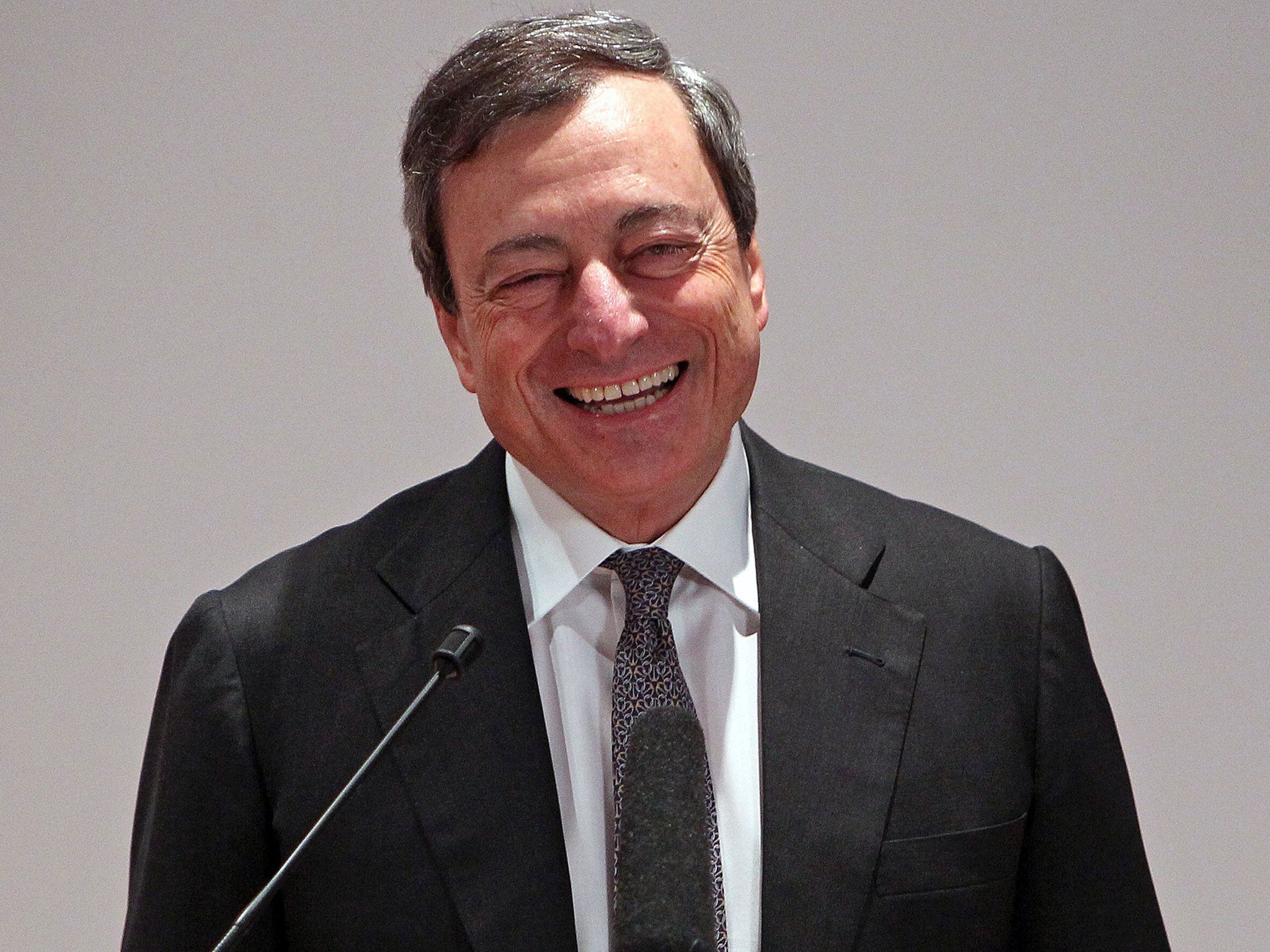David Brierly: Italy’s banks could be about to surprise the eurozone
Financial View: The Italian banking system has been under severe pressure for years, losing money in 2011, 2012 and 2013, according to ECB figures

For the eurozone economy to recover, much now depends on Italy and its banks. Growth is desperately required, politicians have to act and the banks have to lend.
The Italian banking system has been under severe pressure for years, losing money in 2011, 2012 and 2013, according to European Central bank (ECB) figures. The system has been in a vicious cycle of destroying and raising capital. Our analysis at SNL shows that the leading Italian banks remain in a very poor state and will certainly need further capital of €25bn (£20bn) to €70bn. Admittedly, that is far from the only challenge in Italy.
Mario Draghi, the head of the ECB, has emphasised that “ambitious and important and strong structural reforms” are vital for higher growth.The Italian banking system is at the heart of this. Hit by a further recession this year and low interest rates, Italy is being helped by the ECB with remarkably cheap money and support for government bond prices.
But growth in Italy will remain very weak, says Christoph Weil, an economist at Commerzbank, predicting that the economy will contract by 0.2 per cent in 2014 and 0.3 per cent in 2015. He adds that “the banks first have to be cleaned up and begin to lend to see the economy back on to its feet”. If that does not happen, the long-desired recovery might be further delayed.
Restoring the balance sheets of Italian banks is thus critical to Italy, the eurozone and the project of banking union. It is a necessary but not sufficient condition for recovery.
Inevitably, politics will loom large if spending cuts are required to help fund bank recapitalisation. According to SNL figures, around 10 of the 14 banks involved in the ECB’s current asset- quality review and stress test have raised equity since the start of 2014 totalling €10.5bn. Monte dei Paschi di Siena –the world’s oldest surviving bank – led the way with a €5bn cash call. Yet even members of the bank’s close circle admit this might not suffice.
With the notable exceptions of Mediobanca and Credito Emiliano, SNL found that non-performing loan ratios at the end of June 2014 for all Italian banks subject to the ECB’s asset review were in double digits, ranging between 13.9 per cent for Popolare di Sondrio and 28.9 per cent for Monte dei Paschi. While there is an element of rough calculation, these figures are challenging and they are unlikely to improve soon without growth.
Our data shows that the banks’ profitability is extremely weak, with high- risk costs contributing to poor returns. In the short to medium term, the banks need outside help to strengthen capital and expand lending.
On the same basis as our estimate for the capital needs of the Greek banking system, which might require €12bn, we estimate that the Italian banks will need €25bn – assuming the bad loans are 60 per cent covered by the banks’ reserves at the end of 2013. Lifting the banks’ coverage ratio higher than 60 per cent rapidly increases the capital required - up to around €68bn at 80 per cent. For the banks to match roughly the position of Intesa Sanpaolo and UniCredit — which both show a ratio of around 90 per cent – would demand another €33bn.
There is thus a potential capital hole of between €25bn and €70bn at the Italian banks subject to the ECB’s asset quality review. For the system as a whole, the figure must be larger.
The ECB should surely desire more rather than less capital. Not just its authority and the project of European banking union are at stake but the prospects for European growth. A conservative approach looks rational in light of our figures. One might also ask whether a radical solution of bank restructuring – with wholesale mergers and the creation of a national bad bank – might be needed, as in Spain.
This is not expected. The market has ceased to fret about the ECB’s test producing surprises and expects that the capital raising already undertaken will largely suffice. Even if the capital required is at the lower end of our scenarios, €25bn, Mr Weil notes that this would represent “a great deal of money” for the Italian state and its budget, forcing it to exceed its 3 per cent target this year.
Invoking the eurozone’s bailout fund, the European Stability Mechanism, could be difficult. Italy is one of the largest contributors to the ESM, and any disbursement would add to national debt and require Italy to submit to the troika – the ECB, IMF and European Commission – to oversee reforms. This would call into question Matteo Renzi’s position as Prime Minister.
Yet it makes little sense to deal weakly with Italy’s banking problems if Europe is to resume growth. “If the banks are a very big problem, then [recession] costs even more and takes even longer to solve,” says Mr Weil, emphasising the need for strong European banks. The ECB has the chance to act, and should take it.
David Brierley is senior reporter at SNL Financial, the financial analysts and data providers. Salman Aleem Khan contributed to this article.
Join our commenting forum
Join thought-provoking conversations, follow other Independent readers and see their replies
0Comments